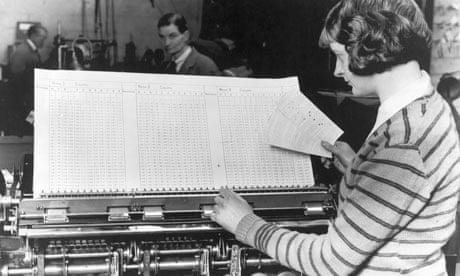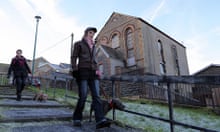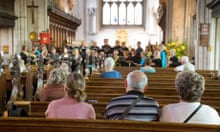The next stage of public debate about the fate of religion is under way. Tis the season of statistics, with some key figures of the 2011 census out. The religion figure is grabbing headlines, with the number of self-identified Christians well down (59% compared to 72% in 2001), while those self-identifying as having "no religion" well up (25% compared to 15% in 2001).
Among other bodies, the British Humanist Association is going to have a lot to say about this. And a lot of people will, in turn, have something to say about the BHA's position. Some of these people will spite the humanists for crowing about the figures, and conclude the humanists sound very religious in doing so. But does this argument get us anywhere?
When I began a year-long anthropological study of the BHA, in January 2011, its census campaign was just warming up. Every day was devoted at least in part to getting this effort up and running: setting up the website, liaising with local humanist groups, designing ads. Some local groups and stalwart humanist activists even took to handing out flyers on the street.
The point of the campaign was to encourage people who weren't religious to tick the "no religion" box on the question, "what is your religion?". And the staff I got to know had the firm conviction that this effort could matter. Every single flyer mattered. Every single flyer was passed out with hope.
An industry of scholarship has grown up around debating the pros and cons of collecting quantitative data on faith; much of it points to the deeply unreliable nature of such facts and figures, and "surveyitis" more generally.
The BHA's position was not exactly this. Humanists place a high premium on scientific evidence (even if it's only social scientific evidence). In the case of the 2001 census, though, they were convinced that the religion number was much too high. Bad science, this.
And indeed, the 2001 census put the number of "religious" Britons at about 25%, higher than most other statistical measures from around the same time. So what we're seeing in 2011 looks more in line (although still not exactly in line) with comparable data.
Spurred in part by some of the best sociology on how to understand the 2001 results – and concerned about the extent to which the census figures were being used to justify religion's place in the public square – the BHA set about its campaign.
The crux of its argument was that, for the 2011 census, you shouldn't tick one of the religion boxes (Christian, Muslim, Hindu, Jewish) unless you really were religious. By this, it basically meant unless you believe.
"If You're Not Religious For God's Sake Say So", was the slogan of the campaign. What the BHA wanted to do, in the main, was weed out the "cultural Christians" (and maybe, I suppose, "cultural Hindus" who don't "really" do puja): people who are perfectly happy to say St Paul's cathedral is an important piece of heritage but who don't think that Jesus Christ is the only begotten son of God.
Thus began the sharp intakes of breath. Who are the humanists to say how people should fill in the census? Who are the non-religious to say who is religious in the first place? Writing on this site, Deborah Orr, who had ticked the "no religion" box on the census, nevertheless found herself annoyed by the BHA's injunction. "Humanism sounds like religion without God," she wrote; humanism was just "dogma". Humanism is not a religion. And it's not even particularly helpful to say it's like a religion.
Orr is not alone in her view. It is common to hear critics of the BHA cry foul over what they see as humanist hypocrisy. Whether it's over the "dogmatic" zeal of a project like the census campaign, or the fact that humanists provide funerals, or even – as I learned during my research – that some humanists in local groups would really like to open their meetings in song, the temptation is to say that this is religion by another route.
The problem with this argument is that, just like the charges against the BHA's census campaign, it assumes there is something essential about the concept, contours and practice of "religion". If we want to say that humanism (or science or football) is a religion, or even "like" a religion, what we're really saying is that there's some immutable core to "being religious", and that this bubbles to the surface no matter how hard anyone tries to repress it. But what might this core be?
The closest we get these days is that religion is about belief. Indeed, I would argue that one of the reasons we've seen a drop in the religion numbers in the 2011 census is because more people understand belief as that immutable core. And so fewer people ticked the "Christian" box. Admiring St Paul's – even getting your children christened, dare I say (on the evidence of what some humanists have done) – is no longer enough.
Religion is just another word. It has cultural and historical specificities – many of them, of course, with roots in Christian traditions (not least of which "belief", which is very Protestant). But if we insist on having our public debates (and private reflections) in terms of a religious-secular divide, we'll keep missing the forest for the trees. Humanists aren't being religious. They're being human.







